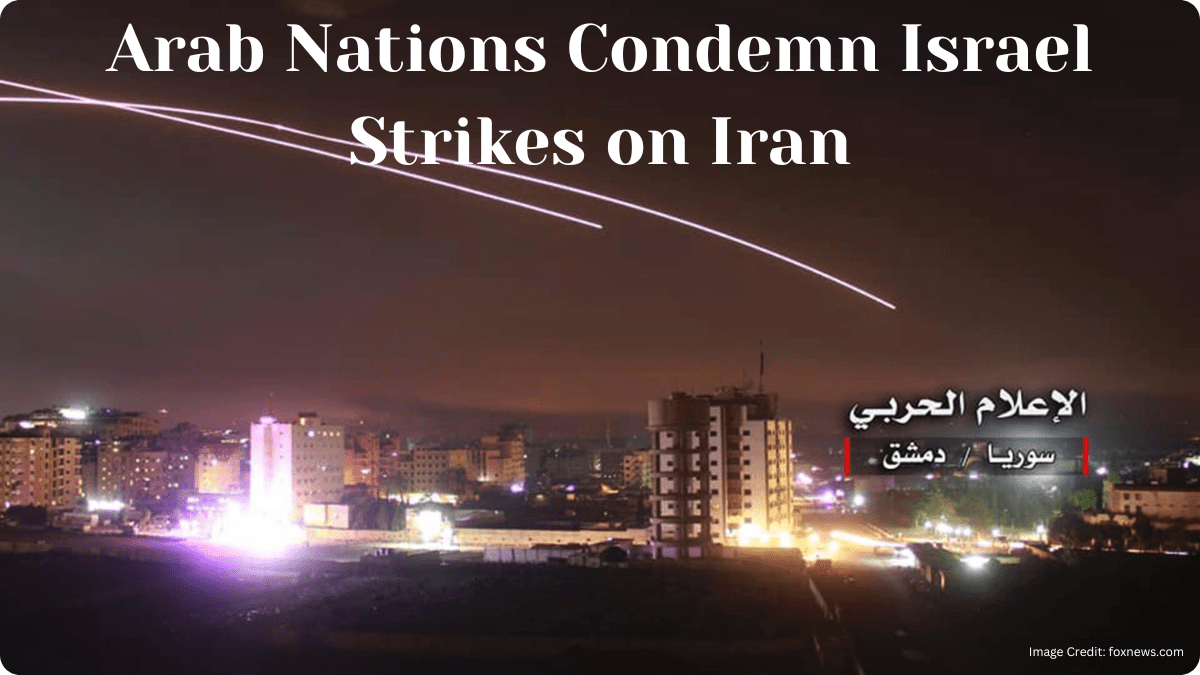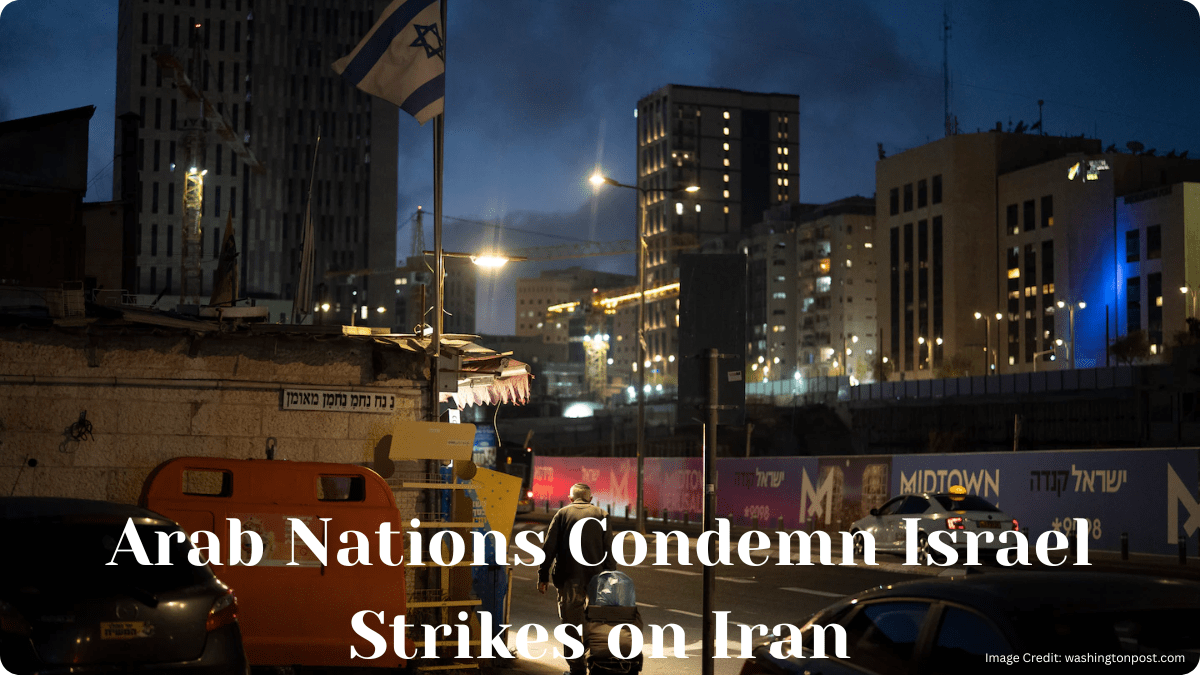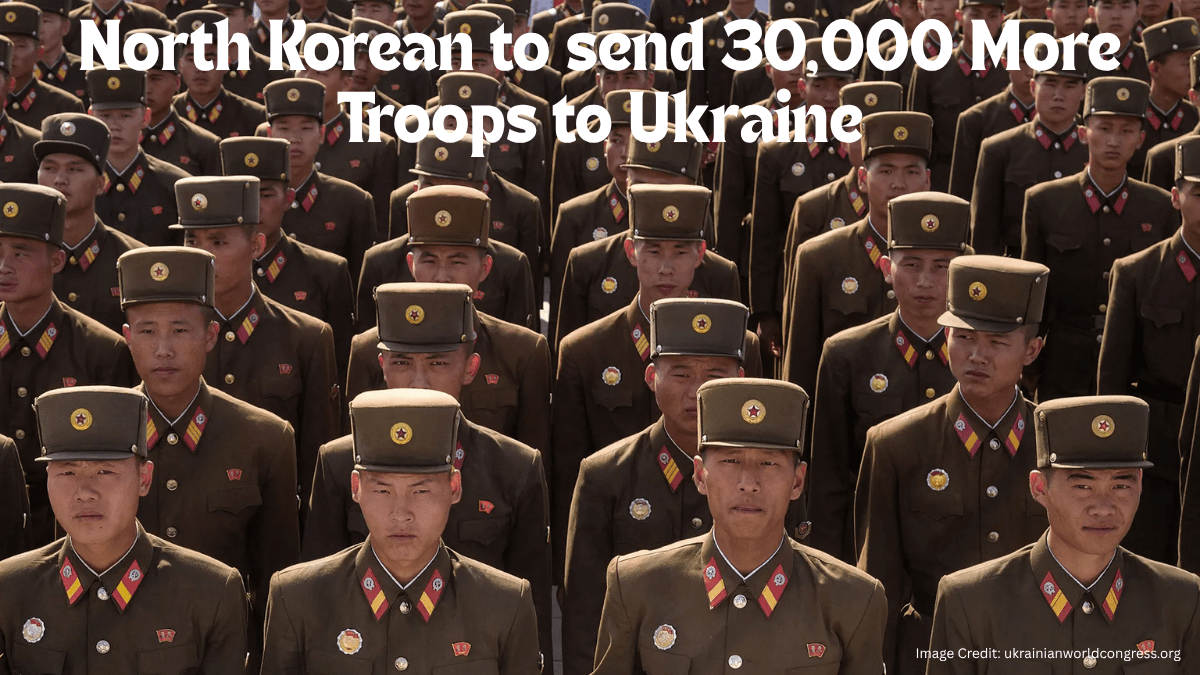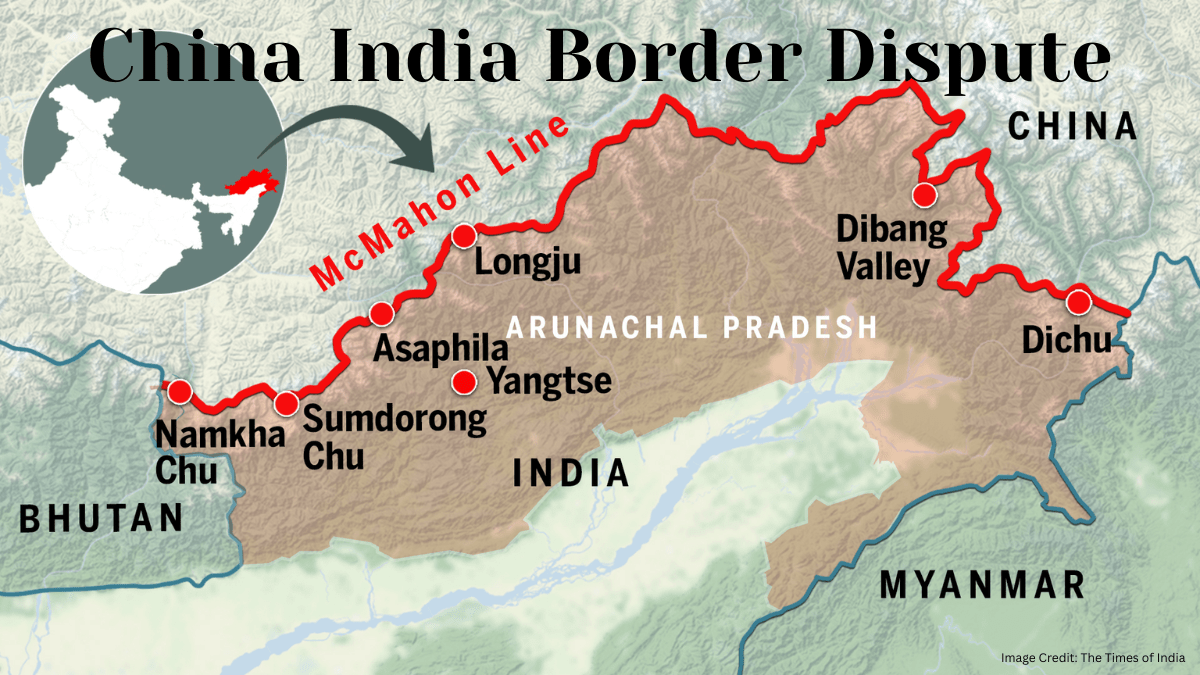Arab Nations Condemn Israel Strikes on Iran
A major shift is happening in Middle East politics. Arab nations and Muslim nations condemn Israel’s strikes on Iran. They have come together like never before. Israel recently bombarded Iran’s territory.
Table of Contents
Breaking Down the Coalition
There is a remarkable thing that happened on June 16, 2025, when 21 countries put aside their differences and spoke in unison. When Arab nations condemn Israel strikes on Iran. The severity of the situation can be gauged.
Egypt’s foreign minister, Badr Abdelatty, quietly helped make this deal work. The countries that joined show what really matters in the region.
The major powers and smaller countries who joined the coalition and condemned Israeli strikes on Iran are:
- Turkey,
- Saudi Arabia,
- The UAE,
- Pakistan,
- Jordan,
- Qatar,
- Kuwait.
- Chad,
- Gambia,
- Comoros.
Why Regional Powers Unite
These countries don’t usually agree on everything. Some do business with Israel regularly. Others have tense relationships with Iran’s government.
But fear of a massive regional war has changed the game completely. The moment when Arab nations condemn Israel strikes on Iran shows how diplomatic alliances can shift quickly.
Strong Words Against Military Escalation
The joint declaration did not mince words. It said that Israel’s bombing was a clear violations of global laws. They said that the UN Charter specifically has being broken.
Key points of the Arab nations condemnation are:
- All attacks on Iranian territory must end immediately,
- Every nation’s borders deserve respect and protection, and
- Peaceful negotiations should replace military strikes.
Major Players Take Clear Positions
Saudi Arabia used friendly language about Iran despite years of rivalry between the two powers. This shows the gravity of the situation.
UAE’s response carries special weight. UAE maintains strong economic partnerships with Israel. Yet they still criticised the military action publicly as part of the movement.
Jordan’s condemnation mattered because of its long peace treaty with Israel. Jordan even called the strikes a violation of international rules.
Casualty Numbers Paint Grim Picture
Human lives continue to climb on both sides. Israeli sources mention 24 people killed and hundreds wounded from Iranian revenge attacks.
Iran’s government claims much higher losses. They report over 224 deaths and more than 1,000 injuries from Israeli bombing campaigns.
These competing figures explain why Arab nations condemn Israel strikes on Iran with such urgency. The numbers show why neighbouring countries a re worried.
Nuclear Facility Attacks Raise Global Concerns
The 21-nation group expressed special alarm about strikes on atomic research sites. International safety agreements protect these facilities from military attacks.
Their statement points out an uncomfortable truth. Israel never signed the major nuclear weapons prevention treaty. Most defence experts believe the country possesses atomic bombs secretly.
Arab nations condemn Israeli strike because of the fear of Nuclear Radiation could spread across the whole area.
American President Donald Trump Delivers Harsh Warning
Donald Trump added fuel to the fire with dramatic language. The US President told Tehran residents to leave their city immediately. This unprecedented warning shows American fears about nuclear weapon development.
Trump also blamed Iran for rejecting previous peace offers. His social media post called the current bloodshed unnecessary and tragic.
Economic Shockwaves Hit Multiple Countries
Business impacts are spreading quickly across the region. Airlines have cancelled flights over the Gulf states. Shipping companies worry about safe passage through important waterways.
Many countries participate when Arab nations condemn Israel strikes on Iran despite maintaining close ties with America. This creates difficult diplomatic balancing acts for their leaders.
Israeli Leadership Defends Military Strategy
Prime Minister Benjamin Netanyahu frames the attacks as necessary self-protection. He claims Iran represents a deadly threat to his country’s survival.
Israeli forces have hit multiple targets:
- Missile production and storage sites,
- Nuclear research laboratories,
- Senior military officers and scientists, and
- Elite Revolutionary Guard bases.
Netanyahu describes these as preventive actions to stop nuclear weapon creation. He dismisses concerns raised when Arab nations condemn Israel strikes on Iran.
Also Read

Iranian Counter-Attack Strategy Unfolds
The Iranian government insists that its atomic program serves only civilian energy needs. Military leaders have launched multiple rockets toward Israeli cities since fighting began.
Tehran promises additional retaliation will be coming soon. This creates a dangerous pattern where each attack justifies the next response. The cycle continues despite calls from those who support when Arab nations condemn Israel strikes on Iran.
Peace Agreements Face Serious Pressure
The Abraham Accords brought hope for regional stability just a few years ago. These deals normalised relationships between Israel and several Arab governments.
Now those same countries must choose between supporting Israel and demanding peace. Their participation when Arab nations condemn Israel strikes on Iran suggests stability comes before loyalty.
Multiple Scenarios Could Unfold
International observers are watching nervously as violence spreads. The United Nations Security Council faces mounting pressure to intervene before control is completely lost.
Several possibilities emerge:
- More nations might reduce diplomatic ties with Israel,
- Iran could launch even larger missile campaigns,
- America might get drawn into direct military involvement, and
- Regional trade and tourism could suffer major disruption.
The unified response when Arab nations condemn Israel strikes on Iran could influence all these outcomes significantly.
Diplomatic Solutions Still Possible
The 21 countries offered a potential roadmap:
- End the bombing campaigns first.
- Return to negotiated discussions about Iran’s nuclear activities.
- Work toward removing all atomic weapons from the Middle East.
Whether political leaders can pull back from military confrontation remains uncertain. But this unusual display of unity when Arab nations condemn Israel strikes on Iran sends a clear signal: the region prefers talking over fighting.
Future Depends on Next Few Days
Critical decisions are coming fast. Every missile launched pushes peace further away.








